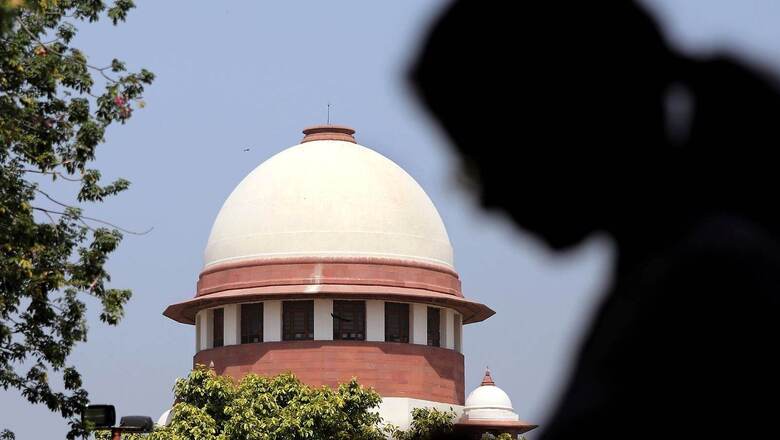
views
The parents of the victim in Delhi’s Chhawla gang-rape and murder case on Monday challenged the Supreme Court order, which acquitted the three convicts, who were awarded the death sentence, almost a month ago.
“…grave injustice would be caused to the deceased victim, her parents, and the society in case the accused persons/Respondents are allowed to walk free despite having strong circumstances pointing towards their guilt which have been duly proved beyond reasonable doubt,” said the review plea filed by the father of the victim.
The plea further states that in the Supreme Court’s November 7 judgment, there is an error apparent on the face of record as this court has erred in not appreciating the testimonies of material witnesses, which only direct towards the guilt of the accused persons and are incompatible with the innocence of the accused persons/ respondents.
The review plea also states that the top court has erred in not appreciating that there is no gap left in the chain of evidence, which only point towards the guilt of the accused persons.
“…this Hon’ble Court has erred in observing that there are serious doubts in the story of the prosecution pertaining to circumstances under which the accused were arrested and the car was seized,” the plea said further.
On November 7, the SC acquitted the three men sentenced to death for the gang-rape and murder of the 19-year-old woman in Delhi’s Chhawla area.
The apex court bench headed by former Chief Justice of India Uday Umesh Lalit noted that the prosecution failed to provide “leading, cogent, clinching and clear evidence, including those related to DNA profiling and call detail records against the accused”.
In 2014, a trial court termed the case “rarest of rare” and awarded death penalty to the three accused. The judgment was upheld by the Delhi High Court.
Speaking exclusively to CNN News18, the then CJI Uday Umesh Lalit defended the Supreme Court judgment.
In an exclusive interview with News18, Lalit said it was a “difficult fact situation”, and according to it “the guilt of the persons was not established”.
“It is a difficult fact situation where according to us the guilt of the persons was not established. If the guilt of the persons was not established means that there was no way we could give them death sentence. There was no way we could hold them guilty, and that is the reason why we acquitted them. Therefore, it depends on fact situation; depends on what is present there before you as a case study,” the former CJI had said.
Called Uttarakhand’s ‘Nirbhaya’, the trial of the rape and brutal murder of 19-year-old victim had many lapses, the apex court had earlier stated. Out of the total 49 witnesses examined by the prosecution, 10 material witnesses among them were girls who ostensibly saw the victim getting kidnapped in a car, but they were not cross-examined by the defence counsel.
The court also observed that in various decisions it had repeatedly observed that the judge is supposed to take active participation in the trial and question witnesses, but in the present case the judges in lower courts played the role of ‘passive umpires’.
The SC, thus, observed that the lack of cross-examination of the key witnesses and the judge playing the role of passive umpire, the accused were deprived of the rights to have a fair trial.
Read all the Latest India News here




















Comments
0 comment